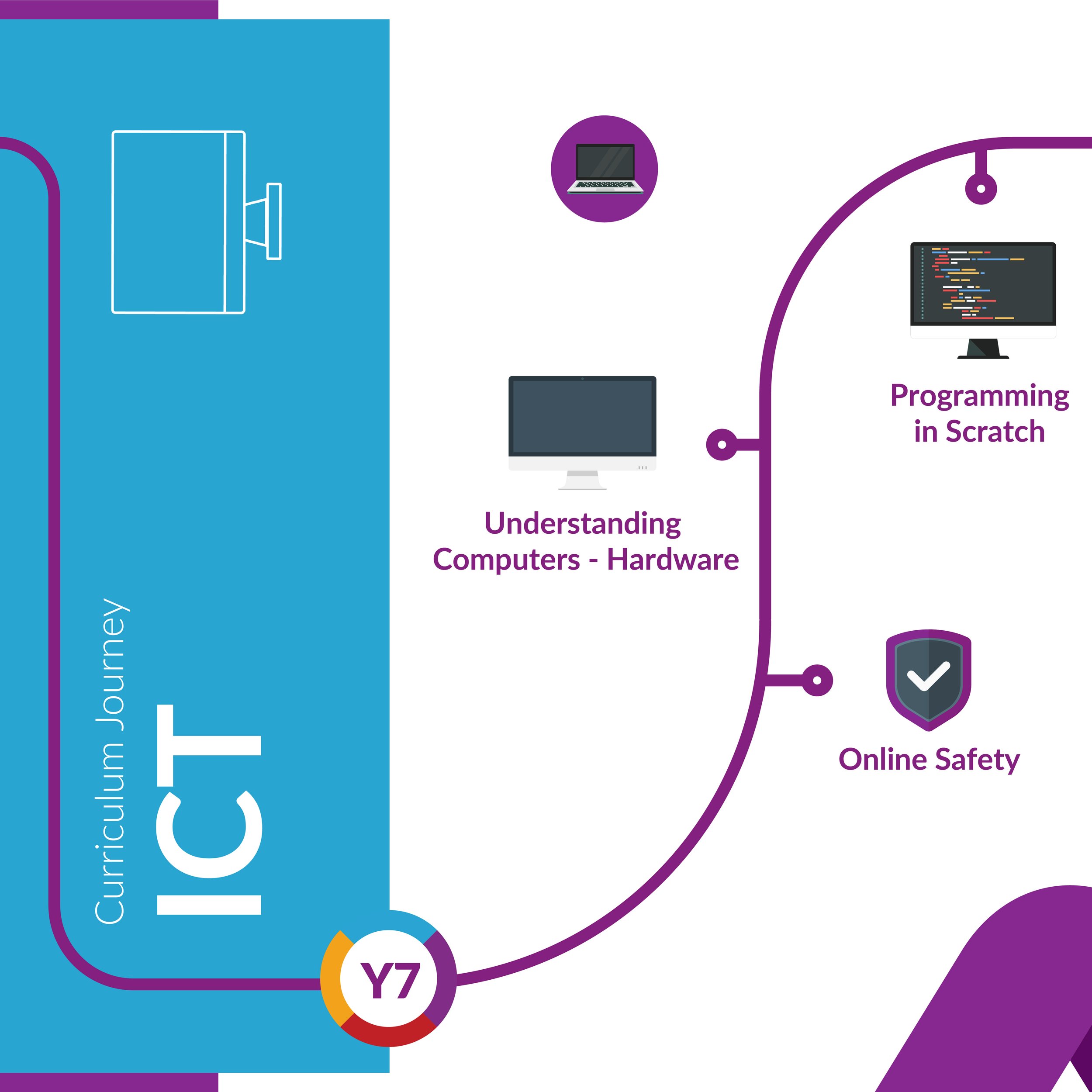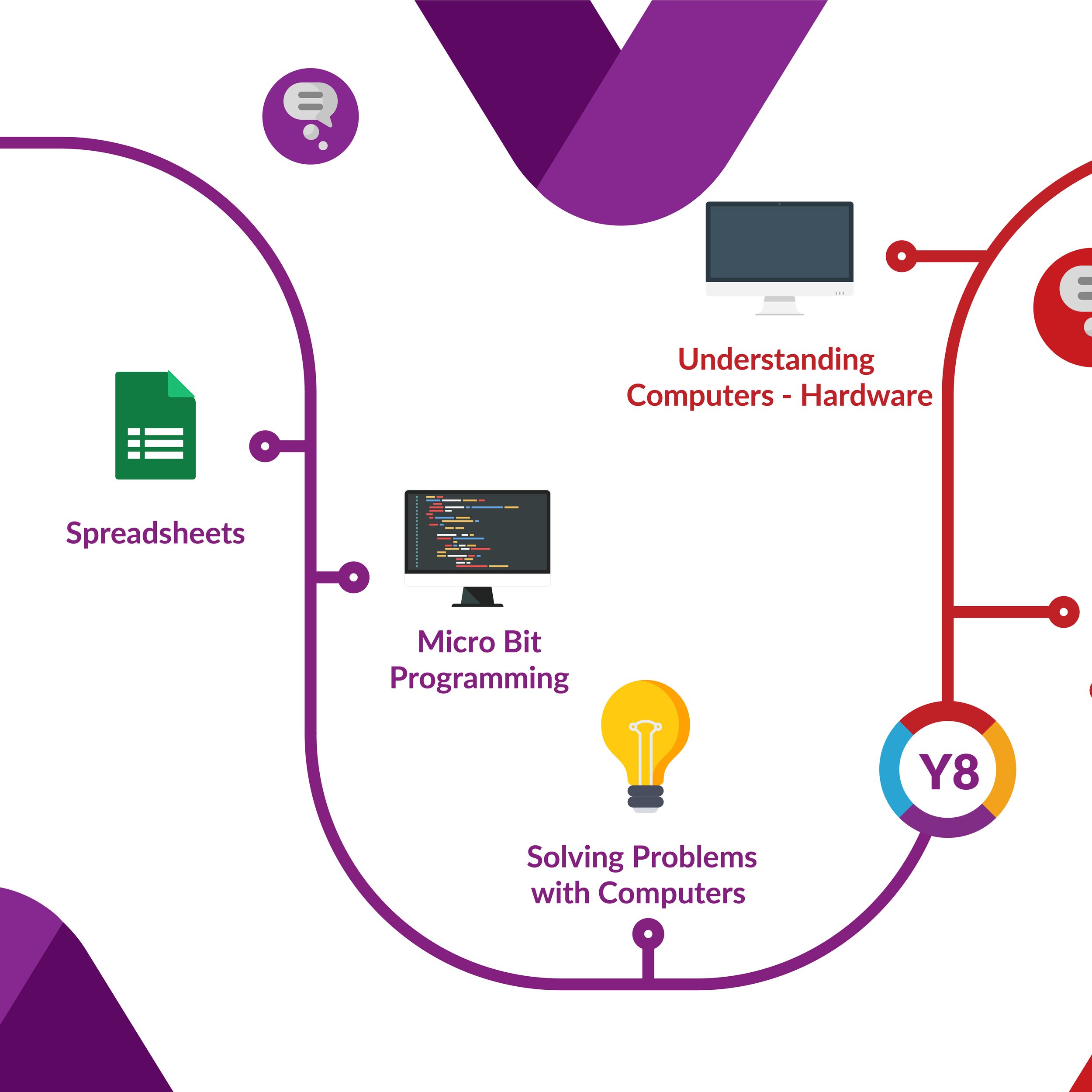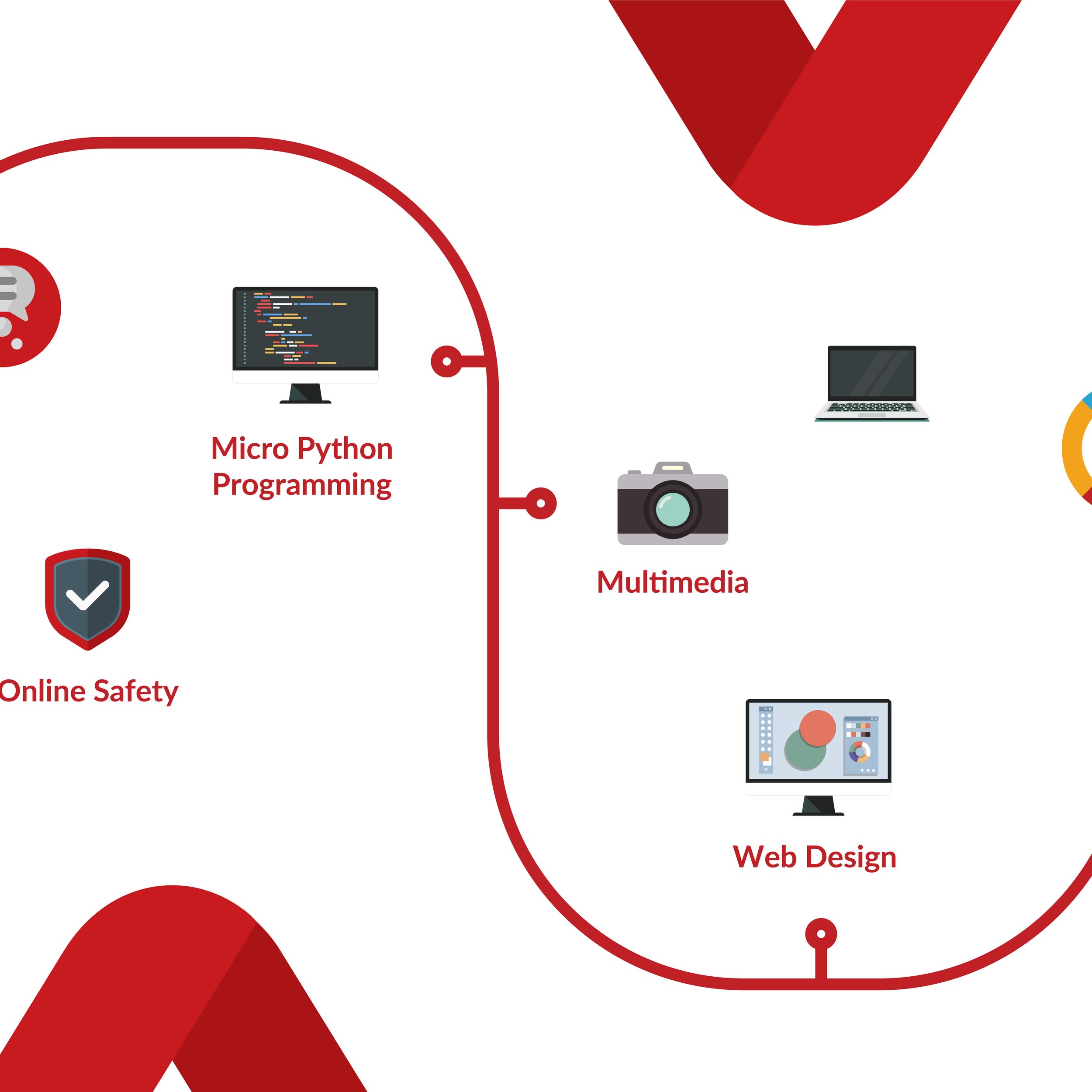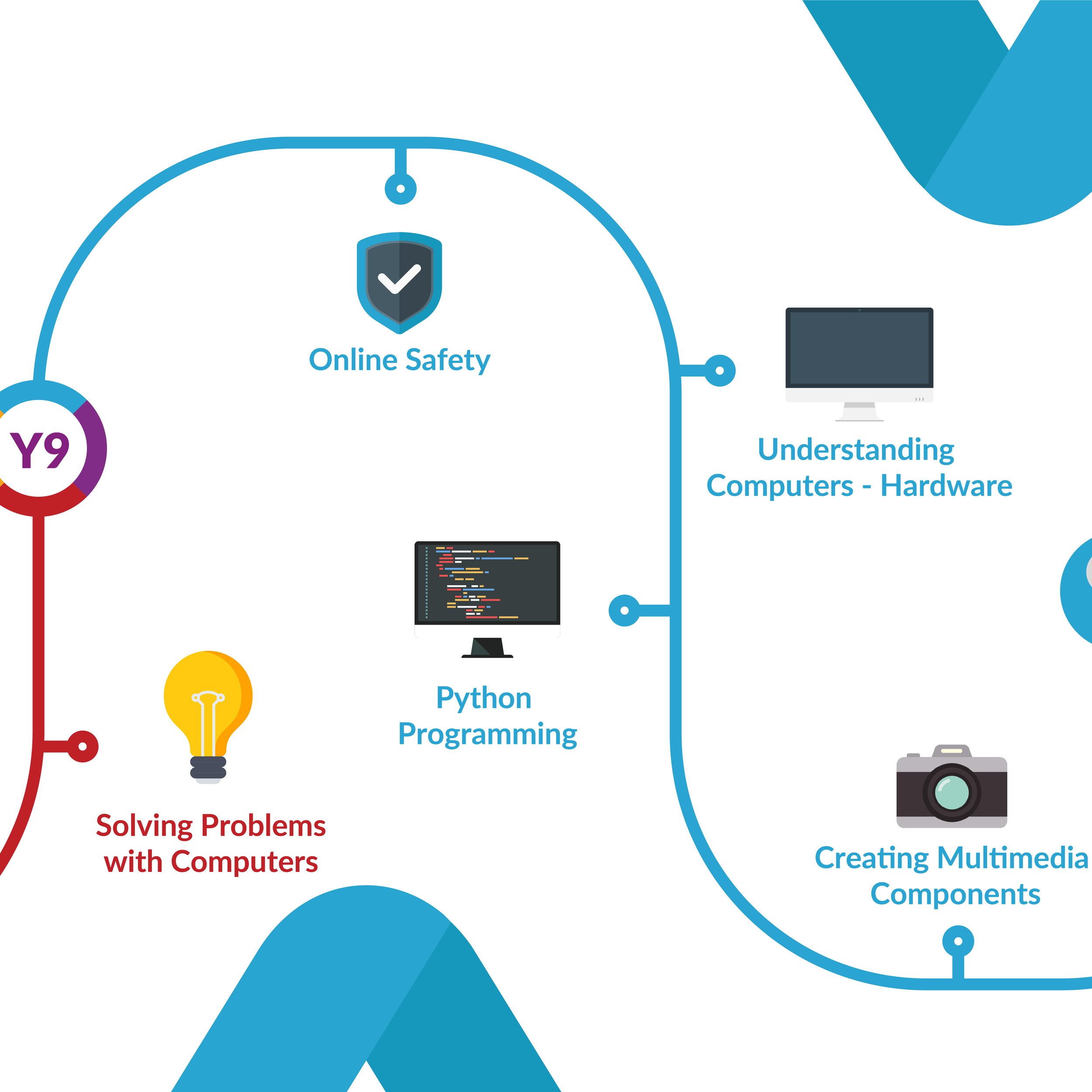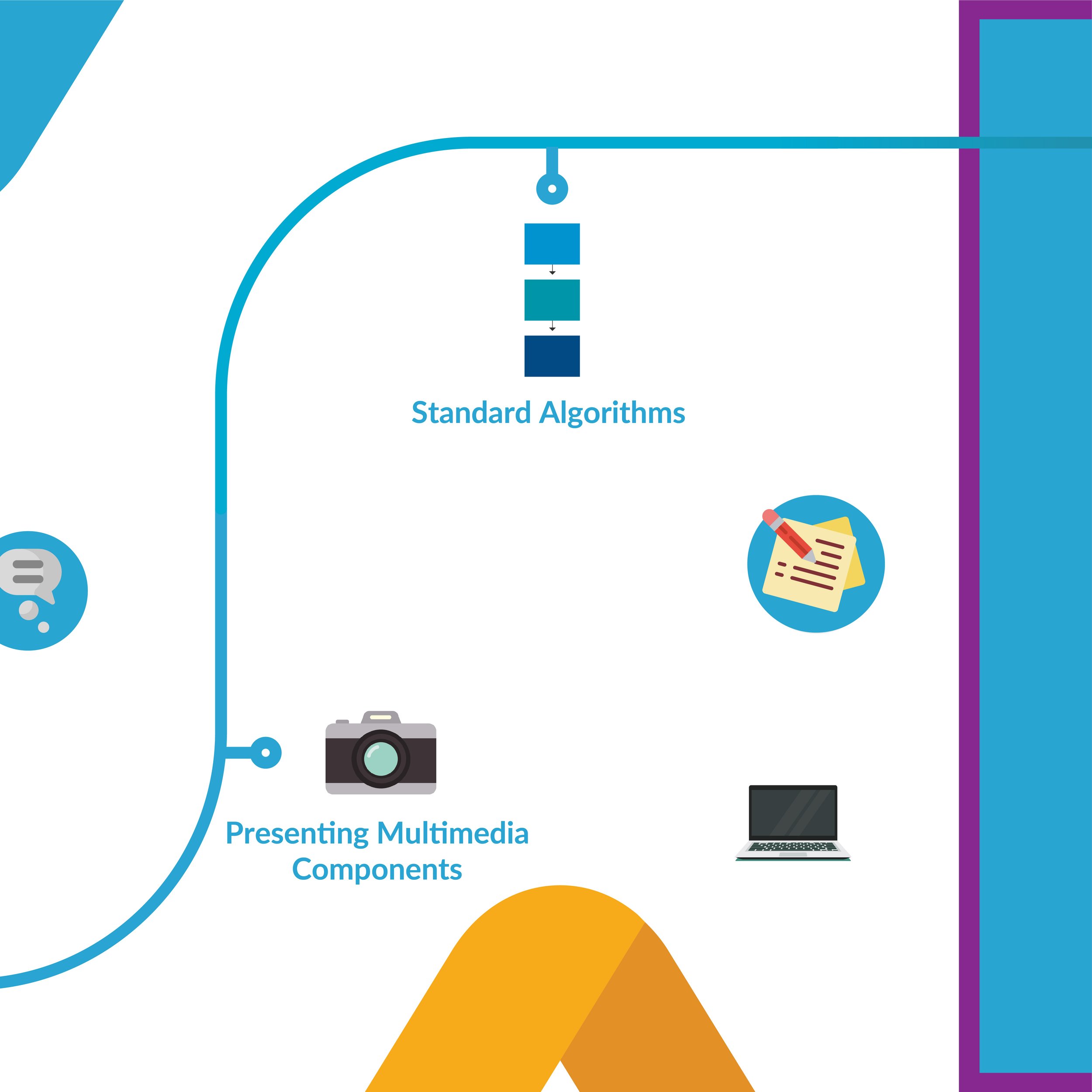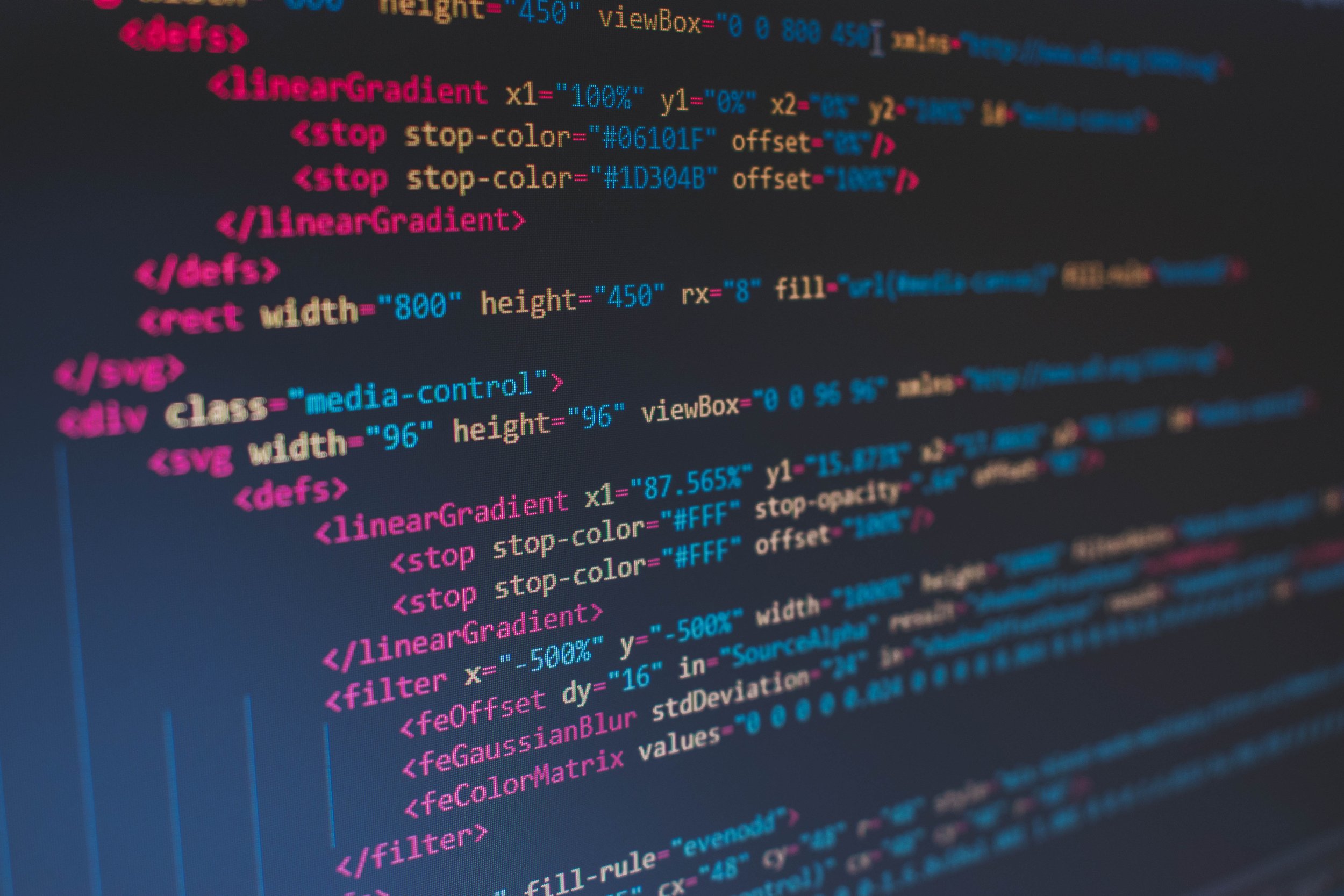
Computer Science
Year 8
Half Term 1
E-Safety
-
Pupils will learn a range of ways to use technology safely, respectfully, responsibly and securely, including protecting their online identity and privacy; recognise inappropriate content, contact and conduct and know how to report concerns.
-
The ideas pupils will understand and the words they will be able to use.
Social Media, Piracy, Copyright, Data, iDEA, Fake news, Sexting.
-
All resources for each lesson with be available on Teams for pupils to access from home.
Parents can support the learning by having an open discussion on e-safety and explaining the importance of staying safe online.
Parents can also encourage their children to complete the home learning activities to a high standard. -
Half Term 2
Understanding Computers
-
Pupils will understand simple Boolean logic [for example, AND, OR and NOT] and some of its uses in circuits and programming; they will understand how numbers can be represented in binary, and be able to carry out simple operations on binary numbers [for example, binary addition, and conversion between binary and decimal.
Pupils will understand the hardware and software components that make up computer systems, and how they communicate with one another and with other systems.
They will also understand how instructions are stored and executed within a computer system; understand how data of various types (including text, sounds and pictures) can be represented and manipulated digitally, in the form of binary digits.
-
The ideas pupils will understand and the words they will be able to use.
CPU, motherboard, heat sink process, fetch-decode-execute, logic gates AND, OR, NOT, resolution, pixels, binary, denary.
-
All resources for each lesson with be available on Teams for pupils to access from home. Parents can support the learning by encouraging students to explain their learning to you. Parents can also encourage their children to complete the home learning activities to a high standard.
-
Half Term 3
MicroPython
-
Pupils will use programming languages to solve a variety of computational problems, make appropriate use of data structures and design and develop modular programs that use procedures or functions.
They will design, use and evaluate computational abstractions that model the state and behaviour of real-world problems and physical systems. -
The ideas pupils will understand and the words they will be able to use.
Sequencing, variables, lists, iteration, selection, accelerometer.
-
All resources for each lesson with be available on Teams for pupils to access from home.
Parents can support learning by encouraging their children to complete the home learning activities to a high standard. -
Half Term 4
Multimedia
-
Pupils will understand that creative projects involve selecting, using, and combining multiple applications, preferably across a range of devices, to achieve challenging goals, including collecting and analysing data and meeting the needs of known users.
They will create, re-use, revise and re-purpose digital artefacts for a given audience, with attention to trustworthiness, design and usability of the final product.
-
The ideas pupils will understand and the words they will be able to use.
Multimedia, masterslide, hyperlinks, interactivity, compression, digital media, convergence.
-
All resources for each lesson with be available on Teams for pupils to access from home.
Parents can support the learning by encouraging students to explain their learning to you.
Parents can also encourage their children to complete the home learning activities to a high standard. -
Half Term 5
Web Design
-
Pupils will use programming languages to solve a variety of computational problems, make appropriate use of data structures and design and develop modular programs that use procedures or functions.
They will design, use and evaluate computational abstractions that model the state and behaviour of real-world problems and physical systems. -
The ideas pupils will understand and the words they will be able to use.
Sequencing, variables, lists, iteration, selection, accelerometer.
-
All resources for each lesson with be available on Teams for pupils to access from home.
Parents can support learning by encouraging their children to complete the home learning activities to a high standard. -
Half Term 6
Solving Problems with Computer Programs
-
Pupils will develop an understanding of several key algorithms that reflect computational thinking for example, ones for sorting and searching; using logical reasoning to compare the utility of alternative algorithms for the same problem. Pupils will design, use and evaluate computational abstractions that model the state and behaviour of real-world problems and physical systems.
Pupils will use programming languages to solve a variety of computational problems; make appropriate use of data structures; design and develop modular programs that use procedures or functions. -
The ideas pupils will understand and the words they will be able to use.
Count-based iteration, variables-based iteration, condition-based iteration, functions, efficiency
-
All resources for each lesson with be available on Teams for pupils to access from home.
Parents can support learning by encouraging their children to complete the home learning activities to a high standard. -

